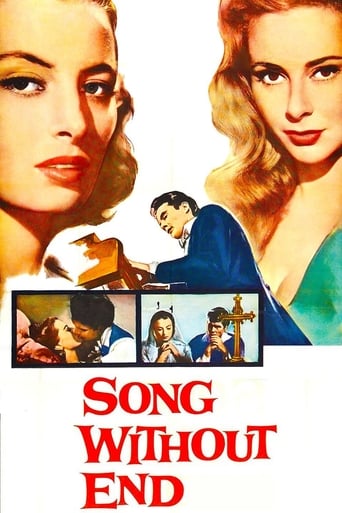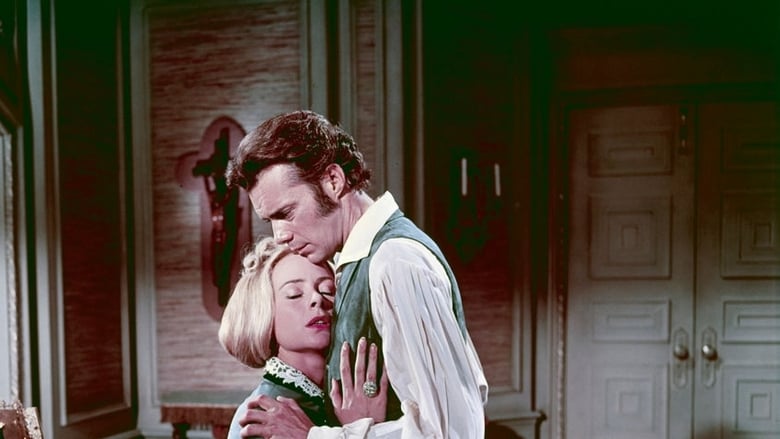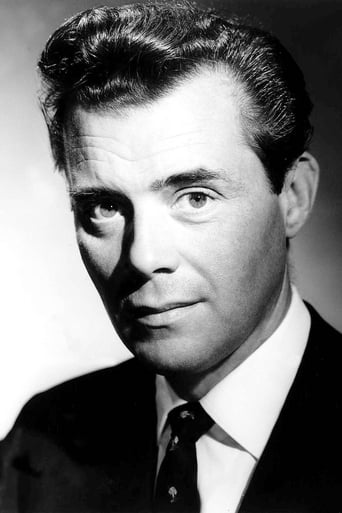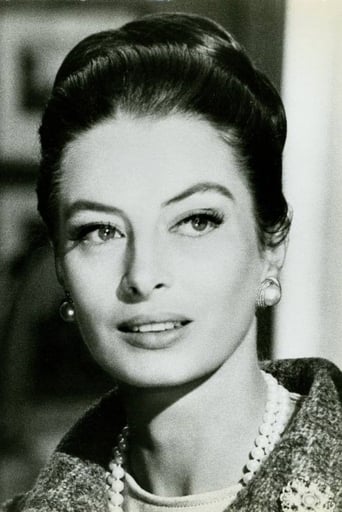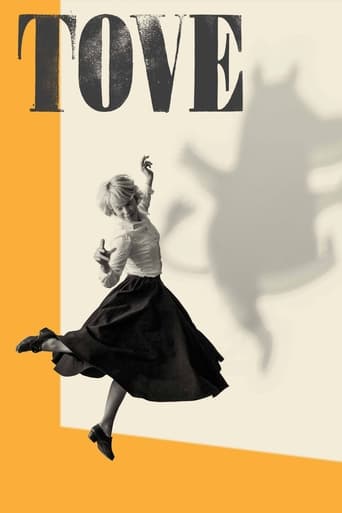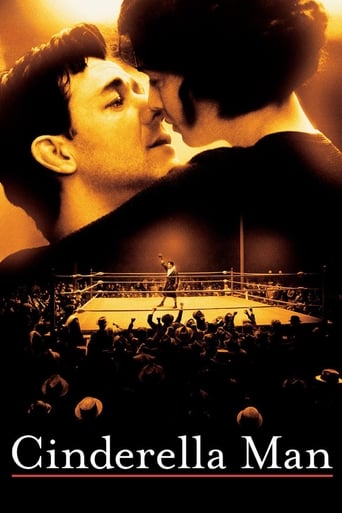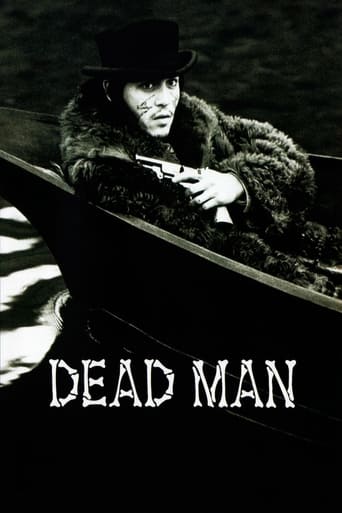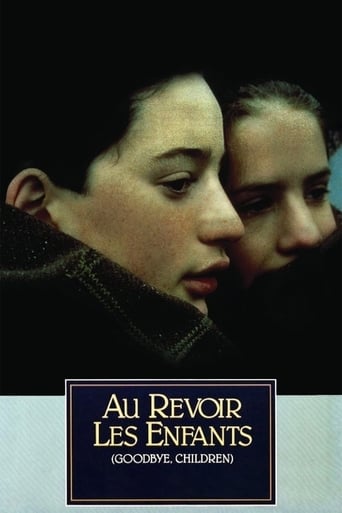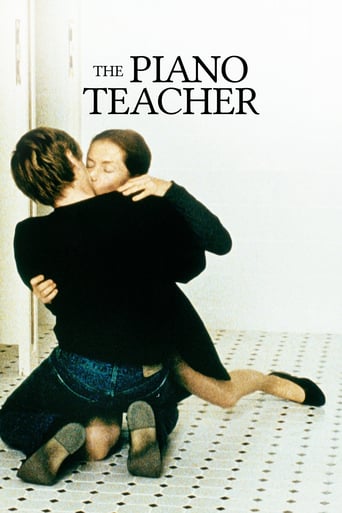Song Without End (1960)
The romantic story of Hungarian pianist Franz Liszt, whose scandalous love affair forced him to abandon his adoring audiences.
Watch Trailer
Cast


Similar titles
Reviews
Wonderful Movie
Excellent but underrated film
As Good As It Gets
Pretty good movie overall. First half was nothing special but it got better as it went along.
Saw this in the movies when it came out (1960) when I was 21 and was transported. Seen it again a few times since then and it holds it's power for me. Of course the magic is the music, played never better by Jorge Bolet. Wasn't that knowledgeable about Liszt prior but became an instant fan after seeing it. The settings, dress, acoustics, and color also make it an outstanding 2 hours well spent. The story is not that important since it's the music you're waiting for. All hands did well, and especially Bogarde with his spot-on finger-work. However, how anyone would expect such raving beauties to be swooning over the likes of the foppish, prancing queen portrayed here by good old Dirk is a mystery to me. Were it not for the majestic music this wouldn't be worth a second look...but oh that music.
Franz Liszt back in the day was maybe the first popular musical icon. Since we have no phonograph records of what he sounded like on the piano we only have his music to judge him by today. Good thing he wrote a lot of it.A Liszt concert back then if played for a mass audience was something like the reception that Elvis and The Beatles got back in their day. It aroused the jealousy of a lot of Liszt's contemporaries, but they respected his talent.Dirk Bogarde is a capable and charismatic Liszt who had a weakness for married women. He ran off with one and had a couple of kids by her and then seduces a royal countess. The two women in question are played by Genevieve Page and Capucine. Dirk and Cappy have a whole lot of hurdles to overcome before they can be happy, put there by the Romanov family and the Catholic Church, but it does sort of work itself out in the end.My favorite performance in the film is that of Martita Hunt who plays a dowager German princess who offers Liszt employment when he needs it. The film only covers a small portion of Franz Liszt's life, still it's a worthwhile biographical study.
Song Without End is indeed a film that does not display the characters in a believable situation. However, the music score is among the greatest in motion pictures.I will always remember that performance of ' Les Prelues'as being the most powerful that I have ever heard even from the best symphony orchestras.The performances of the late Jorge Bolet are magnificent.Especially during the clever arrangement of the Concerto/Hungarian Fantasia. It is clear that Dirk Bogarde is not playing the piano,yet one cannot help but take pleasure in the greatness of the music whomever is playing.The producer of the film also takes great pains in letting the audience know that Franz Liszt often performed the music of other composers like Wagner and Berlioz.He also was a great fan of Chopin. This is addressed in the film with care and intelligence.I remember this film as a child and can still remember the great music.Thank God! for the score from Song Without End.
In a confused welter of artistic licence, this is the classical music biopic which makes 'Song to Remember'look like a masterpiece. Bogarde succeeds in diminishing the reputation of the musical colossus who spanned European music for most of the 19th Century. The absurdities of the plot, the sequoia-like quality of the acting and the prevalence of historical,musical and linguistic anachronisms combine to elevate this offering to the status of an A1 turkey.How a pianist of the stature of Bolet came to be mixed up in this fiasco can only be guessed at. The characterisation of Liszt fails to convey even a minute impression of his magnetic personality and the overwhelming effect that he had on not only his audiences, but also his pianistic rivals.Clara Schumann herself said that 'we toil over that which Liszt reads at sight!' Whilst the emphasis seems to focus on his romantic prowess,rather than his status as the greatest pianist of the century or,arguably, of all time, one feels,nevertheless, that this was an opportunity lost.

